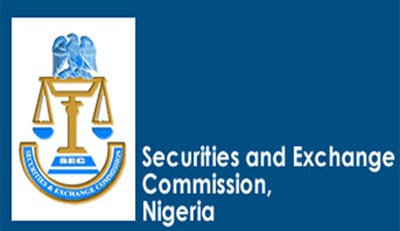The Securities and Exchange Commission (SEC) Nigeria and the Islamic Financial Services Board (IFSB), an international standard-setting body with a vested interest in ensuring the soundness and stability of the global Islamic financial services industry, are set to convene an SEC Nigeria-IFSB International Forum on Non-Interest (Islamic) Capital Market.
The SEC, in a statement issued at the weekend, maintained that the Forum would feature several discussions on how to tackle the inadequate capacity within the industry, lack of awareness and education, the paucity of human capital and expertise, the limited availability of sharia-compliant products including short-term Shariah-compliant liquidity instruments, the harmonization of regulatory and supervisory standards, and the integration of NICM with the conventional financial system.
Noting that the Non-Interest Capital Market (NICM) in Nigeria has evolved and is gradually transforming into an important segment of the nation’s financial market, the Commission said NICM would serve as a veritable avenue for mobilizing medium to long-term investment in an ethical and Shariah-compliant manner through a wide range of products/services offered such as Sukuk (Islamic bonds), Islamic Mutual Funds, Islamic REITs, Islamic Crowdfunding and Islamic Fintech, etc. that cater for the needs and preferences of both ethical and conventional investors.
The Commission noted that the NICM sector had witnessed remarkable growth in recent years, reaching a global size of $3.25 trillion in 2022 and listed the main drivers of this growth as the increasing demand for ethical and socially responsible finance, diversification of funding sources and risk management tools, development of enabling regulatory and legal frameworks, and the innovation and standardization of NICM products and practices.
It stated: “Nigeria, as the most populous country in Africa and home to the largest Muslim population in the continent, has a huge potential to develop its NICM sector and benefit from its opportunities.
“Nigeria has taken several steps to promote NICM; from the registration of the first Islamic Fund in 2008 to the issuance of the first Sub-National Sukuk in 2013 and the subsequent issuance of the country’s first Sovereign Sukuk in 2017.
“To date, the country has witnessed further sovereign and corporate Sukuk issuances as well as the registration of more ethical and Shariah-compliant funds” it added.
The Secretary-General of IFSB, Dr. Bello Danbatta, commended the Commission and the Nigerian government on “the steadfast dedication to cultivating a resilient non-interest capital market in Nigeria. The comprehensive initiatives including the upcoming high-level international forum with the IFSB and market players underscore the distinct commitment to fostering industry collaborations, facilitating insightful discussions, and promoting knowledge sharing.
“We look forward to initiating this continuous, collective effort propelling market development, promising not just economic strength but also ensuring enduring and inclusive prosperity for the people”, Danbatta added
Despite the initiatives of the capital market regulatory commission, current realities still reflect that many challenges are hampering the faster development of the Nigerian NICM sector.
The SEC has been implementing several initiatives to further deepen the NICM in line with the 10-year Capital Market Masterplan (2015–2025) and the Revised CMMP (2021–2025) and also developed regulations for Sukuk issuance and Islamic fund management.
As a result, three corporate Sukuk and two sub-national Sukuk have been approved. In addition, 11 Shariah-compliant funds are operating, with AuM of over N95 billion.
The Forum will also feature two side events; the IFSB’s 5th Innovation Forum – held for the first time in the region and an IFSB Member and Industry Engagement Session.
The high-level Forum, which will be held on 6th and 7th December, 2023 in Abuja Continental, is expected to strengthen cooperation and knowledge-sharing among market players and policymakers around the world, especially in the African region.






